Digital ADA Compliancy Podcast
- August 26, 2020
- / Anne Sallee | Senior Relationship Mgr. | DigiPro Media
- / Business,Accessibility,Development,learningcenter,Technology,Websites
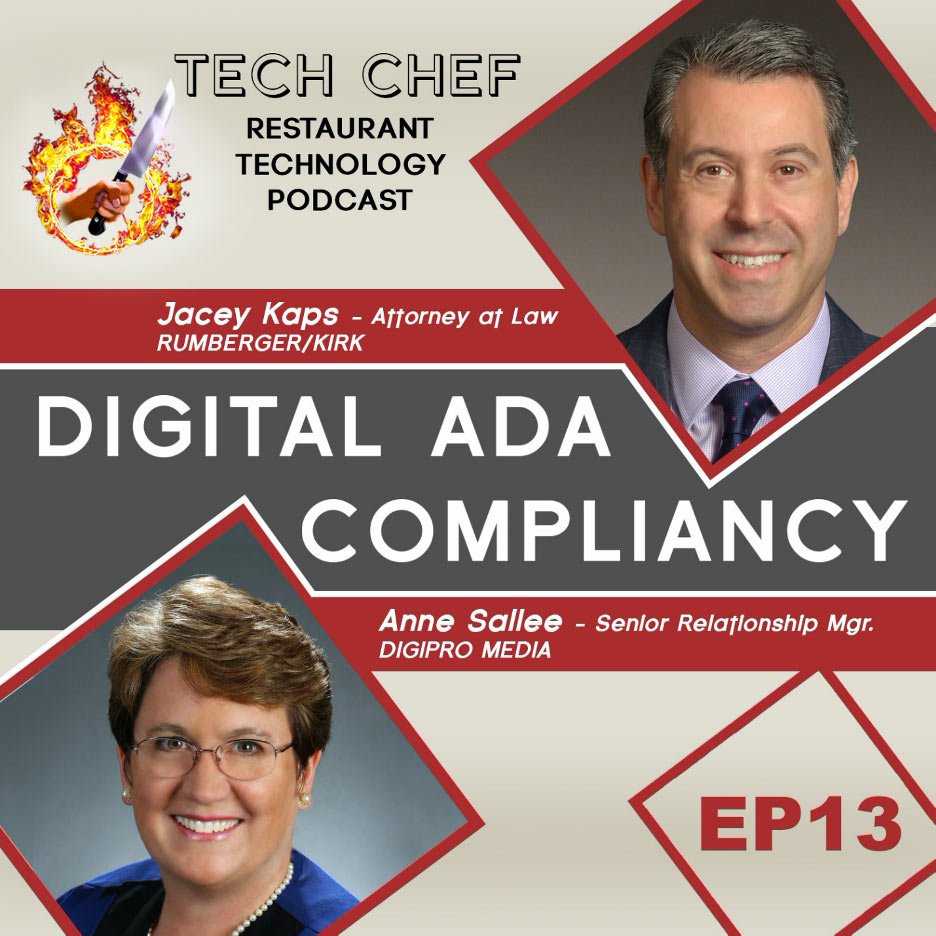
https://podcasts.captivate.fm/media/bd597f1d-4052-4402-a37b-6fe801b815b1/episode-13.mp3
Today, we will be talking about Digital ADA Compliancy and how to make your website compliant as well as what to do if you get notification you are being sued due to non-compliancy. Jacey Kaps, Attorney at Law for Rumberger / Kirk, will discuss what to do when you get notified of such an event as well as the legal implications around this. Anne Sallee, Senior Relationship Manager for DigiPro Media will discuss how to fix your website for compliance as well as some pre-emptive things you can do to prevent future lawsuits.
Jacey Kaps – Rumberger | Kirk
Jacey is conversant in issues arising from data security breaches, the ensuing claims, and regulatory investigations. He is able to provide guidance on cybersecurity risks and cyber incident readiness. Jacey holds the ANSI/ISO accreditation of Certified Privacy Professional US (CIPP/US) from the International Association of Privacy Professionals and Payment Card Industry Professional (PCIP) from the Payment Card Industry Security Standards Council. When online and offline privacy assessments and information security audits are needed, Jacey is able to assist his clients with identifying the relevant legal considerations and retaining the appropriate consultants to accomplish the task. Jacey’s litigation experience and lengthy tenure on his law firm’s Executive Committee also equip him to address cybersecurity issues unique to law firms.
Jacey’s team represents a wide range of clients with the depth and capabilities to handle the issues that matter to retailers including commercial and transactional disputes, construction disputes, intellectual property litigation, labor compliance, Medicare compliance, employment litigation, constitutional challenges and casualty litigation. He also consults with retail, restaurant and lodging businesses in overall litigation management and alternative dispute resolution programs. For more information, visit www.rumberger.com
Anne Sallee – DigiPro Media
Anne is a committed and charismatic professional with a diverse and successful experience in business, legal, government and NGOs, including legislative advocacy, strategic planning, marketing, public relations, research, customer service, event planning & management, fund raising, risk management, goal setting, budgeting, policy and procedure. Phew! As a mission-focused leader with an understanding of long-range and strategic planning to reach goals, she is able to lead and collaborate effectively to meet objectives and knock it out of the park! For more information, visit www.DigiProMedia.com
Speaker 1
00:01
This show is sponsored in part by Fortinet and the FortiGate 40 F firewall, part of the Fortinet security fabric for retail, providing retailers with confidence on their digital transformation journey via industry leading network, security, and management solutions. Learn more on how Fortinet helps retailers secure their branch, data center and multi-cloud environments. For more information, go to Fortinet.com forward slash retail that's Fortinet.com forward slash retail.
Speaker-recording
00:32
{flight attendant announcement} Ladies and gentlemen, thank you so much for flying with us on our final approach. Please make sure your seat backs and trays are in their upright and locked positions. And any carry-on bags are stored on the floor beneath you. We should be on the ground shortly.
Speaker 1
00:45
You are listening to the Tech Chef Podcast, Episode Number Lucky 13, August 25th, 2020.
We seem to be encountering some technical difficulties.
Speaker 1
00:57
Oh, well ain’t that the darndest thing.
01:02
{singing} Our friendly strategy business continuity, how ‘bout a taste test of restaurant technology, drive through or curbside, mobile apps or AI, it’s all on the menu, check out Fortinet, it’s a recipe for success, you’re in good hands with the Tech Chef, if you plan to be your best, strategize with the Tech Chef.
Speaker 1
Welcome everybody. This is your host, Skip Kimpel. And this is another edition of the Tech Chef, the restaurant and hospitality weekly show you're craving to listen to. I know you are.
Did you catch last week's show where we talked to Charlie Gazeta from Burger Fi? Well, if not, I urge you to go listen to it. It has had a record number of downloads and comments, so it will be worth your time. I announced last week that we had a surprise episode today, I'm going to let the cat out of the bag a little bit here to tell you that I will be talking to White Castle about their amazing technology and a very big announcement from them. However, while the show has been recorded, we are still waiting for approval to release that show.
So, it is under wraps until further notice, maybe next Tuesday, keep your fingers crossed. Today we have a much-needed episode on digital ADA compliancy.
Have you received a notification that you're being sued for a lack of website compliancy? Well, if not, don't pretend it's not going to happen to you. They just haven't found their way to your business website. I have two guests on today's episode, Jacey Kaps, attorney at law for Rumberger, Kirk and Anne Sallee from DigiPro Media.
First, we're going to be talking about the legal implications of such a lawsuit, and then we're going to talk to a company that can provide a solution for you to mitigate the situation. Problem, solution, solved.
As a disclaimer, the views and opinions of today's guests are just that. The Tech Chef is not responsible for any action you take or do not take based upon the guests on today's show. If you find yourself in a lawsuit or you're trying to mitigate your own digital ADA compliancy situation, please contact your own legal counsel.
Starting off today's episode, we have Jacey Kaps who is an experienced civil litigator and legal advisor for the retail and hospitality sector. Jacey is conversant in issues, arising from data and security breaches, the ensuing claims and regulatory investigations from the offices of Rumberger Kirk. Jacey is going to give us some legal insight about digital ADA compliancy from his side of the business.
{music}
Speaker 1
03:53
Jacey, thank you very much for joining me today. I want to dig right into the fact that ADA compliancy lawsuits and the effect it's having on the industry.
So I'm a business, I'm a restaurant and all of a sudden in the mail, I get this letter that says you've been sued, um, due to ADA non-compliance on your website. First of all, is this legitimate and how is it affecting the industry?
Speaker 2
04:19
Well, Skip, thanks for having me on number one, congratulations on this great podcast. You know, right to the point it is legit. Unfortunately, it is a really a developing industry that we're seeing. We're seeing a lot of action on the ADA website front, letters are less common than just outright having a process server serve you. Or if you have a registered agent getting service on your registered agent and, right out of the bag, you want to look over the complaint. You'll understand what it is pretty quickly, because it's not a mystery when you'll see ADA website compliance issues. They scream loudly and clearly from the pleading that you're served with. The next step, if you have counsel that you work with, it would be a good idea to refer that over to counsel right away, to find out a little bit more in terms of counsel's experience with the issues and begin to dig in. These lawsuits are pervasive. We’re seeing them across most States, though, there are hot States that seem to really lead the pack on ADA website litigation.
Speaker 1
05:27
Now, Jacey, Are they really looking to intimidate and force people into a settlement or do they truly care about the outcome of this?
Speaker 2
05:36
The truth is Skip that mostly these are “Sue and Settle” type cases, analogous, you know, for anyone that's listening, that's familiar with the actual physical barrier ADA litigation that was very prevalent as recently as about three to five years ago. There's been kind of a tamping down of that litigation. The general interest is to just get to a resolution that involves an attorney's fee and get it settled. There is little if any actual traction to what's going on in terms of a meaningful intent behind it, you will see, recidivist plaintiffs named in these lawsuits. So, interesting backgrounds on a number of these people that are filing the suits, but what you won't see that you would hope to see if these were suits that were righteous and for a cause is a variety of people bringing these suits because they're born out of a real need for accessibility.
Speaker 2
06:45
But instead, what you're seeing is the vast majority of these lawsuits actually been filed by 10 law firms. I believe the last dataset, which is as good as the first part of this year, um, revealed that 82% of these lawsuits are being filed by 10 law firms. In and of itself, that kind of screams, what's going on here. And again, it kind of hearkens back to and it's really not dissimilar other than the medium we're talking about. It's not dissimilar from the very prevalent ADA accessibility cases that, you know, were the subject of so many investigative articles about who exactly is bringing these cases. And there was a very popular well-known, 60 minutes episode that was run. There was actually filmed here in South Florida, that exposed what exactly was going on. In there, they called it drive, you know, drive-by lawsuits.
Speaker 2
07:43
I think I may be butchering the name and I apologize, because drive-by brings up implications I don't intend, but on the other hand, the legal industry, in terms of the nature of the filing and here, I think the irony with the ADA website cases is that if you take out the drive-by the location element, now you can literally have individuals who are, I guess instigating is the best word I could come up with, but I'm not sure that it's a fair characterization. They're instigating from home. You can sit in your pajamas with a coffee cup, from the comfort of a desk, on a computer, or maybe even a device of some other type and look for opportunities to bring lawsuits against companies.
Speaker 1
08:26
Now, I understand them going after the big brands out there because there's multiple lawsuits, it's probably per location. I'm assuming they go after, but there's a slew of people that I've been contacted by asking me questions. They’re small time companies, very small operations and I'm sure they're sitting there thinking, why are they going after me?
Speaker 2
08:48
And we've heard that a lot and I think it's a very fair question and the answer isn't always readily apparent. I think it turns on to some extent, the sectors that are being sued. A lot of the small operations that we see subject to these lawsuits tend to be in the hospitality side. So small hotels, B and B’s, they're very much the target of this type of litigation. There's a kicker to that, which has to do with the, the physical accessibility elements. There you can go from the medium of the website and whether the website is accessible and really transfer into the actual nature of the accessibility options that are being offered online to describe accessible rooms. There was an incentive that was statutorily based to try to go after these, these companies. And I have to say that I think the secondary point is, larger organizations are going to have the resources to potentially put up a fight.
Speaker 2
09:50
Larger organizations are also going to take steps to remediate, but smaller organizations don't have that in the budget, businesses, mom, and pop businesses. They can't afford to do that necessarily. And certainly, a number of the companies that we've talked with, have expressed their concern of how can we do this? How can we fix this so that when you get back to that point, I made it just a short while ago about the basic “Sue and Settle” mentality that is pervasive with this litigation, that dates back to its origins in Pennsylvania, you see a pattern emerging, a clear picture emerging that there are targets of which the objective is not necessarily to make any type of a sustained change to the organization itself while the goal is very noble, and I don't want to lose sight of that, but the actual means by which this is being done and the recidivous lawyers that are filing these suits don't really put forth that actual picture of we're trying to right a wrong.
Speaker 1
10:54
Now we started the conversation talking about websites, but are they also going after things like apps or any other aspect of the digital presence of the company?
Speaker 2
11:03
So we were early on, I'm going to give you a bit of a history on this one. We were early into this area, when a partner of mine, named Nicole Smith, who does a lot of work in this area is fantastic. She had come across some articles, kind of touching on the subject very early, I'd say early generation of these, this type of litigation. And we started studying the cases. And actually, some folks that I went to law school were also early adopters of this type of litigation. However, they were on the other side. But what was interesting is since I knew them, we started talking to them, trying to find out, Why are you doing this? What's going on here? And the discussion we always had was, We believe firmly, this is going to grow and include apps.
11:50
And there's very little doubt in our mind. And so years ago, there are still webinars on YouTube that you could see, we were talking about our belief that this was 100% going to get extended to apps.
The answer is yes, the Robles versus Domino's Pizza, Ninth Circuit Opinion made it very clear. And if you want to get an interpretation on that, there are many of them, but we've written some of them as well, that there is a intent and a plan to apply the accessibility issues to apps and the rationale behind it too, to kind of keep it in simple terms, it's a lengthy opinion, and I don't want to oversimplify it, but it's really the connectedness of the app to physical space. And so when the court is looking at this, trying to assess the accessibility issues there, the hook to evaluate the app is, is it interconnected with the business and the business's physical space?
12:52
And the court went on, a fairly lengthy discussion explaining that maybe not true of all apps, but the app in question, the Domino's app was connected to the physical space. There was a means of tying into the actual restaurants, themselves Dominoes locations, such that it is integrated with the business. And there's really two schools on in terms of the division of how the courts are looking at websites connected with a nexus to physical space, versus not connected. And I don't want to digress too far into that point, but to answer the question, the courts are looking at that and they've concluded it does. And at the same accessibility standards, even though they're imperfect, the WCAG (web content accent accessibility guidelines) standard, if you're familiar with it needs to be extended to the app space. And that in turn has opened up a whole new area of litigation where now the apps are becoming the focus, because I think it was fairly quickly that we saw recidivous lawsuits. So the same organization that we would represent in a series on accessibility would within short time, within a short time be sued again and again.
14:15
That is very concerning
14:18
And obviously incredibly frustrating for us and for our clients, but the app world opens up a whole new realm of possibilities for this type of litigation. And what was, I think probably very intriguing for the other side, the plaintiffs that are from the suits was that the guidance was going to be very hard to match up with for accessibility purposes. Now there's been work done on that by the world wide web consortium (W3C). And so guidance is emerged, but when there's an absence of guidance, well, there's more guidance today, but just like there was with the websites when we started in on this project and still a willingness of the courts to say yes, we are going to require accessibility that creates somewhat, it's not really a perfect storm, that's a bad word, but it creates an opening to pursue cases like this. And, kind of makes it somewhat hard, right to ward off those subsequent lawsuits. So apps, new world website, I don't want to say that it's, it's old and passe already, still going strong, still plenty of opportunities there. Absolutely a new horizon and a very pervasive one, right?
Speaker 1
15:36
Yes. And I, I certainly, I want to make it very clear. Obviously there is a need for accessibility and those that, that actually need this capability of, of living their life. I completely understand, however, what you described and any amount of, of law firms that are representing such a large amount of clients. I it's very, I don't know. It, it feels really bad. Is there a way as an industry, we can fight back against this?
Speaker 2
16:05
Well, there are industry-wise, ongoing efforts than I've learned about that target legislation target, trying to get actual formal guidance in place, but to this point, has not really materialized. So that is a unified front approach that we strongly support and would love to see, unfortunately, whether it's, climate or timing, right now, in the middle of the pandemic, that those initiatives are, are really not in any meaningful motion. It felt like there was some momentum about a year ago, but it didn't really pan out and land. So, in that vacuum, certainly industry associations can be powerful sources to go to for both information and to vent your spleen and try to get attention and try to use the power of numbers to talk to legislators, to try to get a change that's a sustained meaningful one, because right now, again, I want to go back to, without being repetitive in a vacuum, which is what you have at the moment, courts are left to individual decision making, and they are generally operating based on precedent. And the precedent has been to extend the WCAG guidelines and say that those are the guidelines that are the ones that, websites, if we're focusing on that, are required to hit. And that really, again, puts you back into that individual fight that you don't want to be in. The secondary issue is, to be ready for this, to have a plan in place, to have an accessibility statement on the website, to be able to obviously have an individual who wants to know about accessibility, being redirected also to have an opportunity for them to be able to someone who wants and needs accessibility, to be able to confer with somebody, talk to somebody, in real time, these are some small steps. And then once you've been sued, if you've undertaken the path of accessibility to continue to work on that and demonstrate that you're moving forward. So that's a little bit narrower of course, than the broad. Is there something we can do as an industry?
In the absence of being able to give you a good broad answer that says, you can put all your efforts in this direction or that, Bucky, then the individual response is what you're left with right now.
Speaker 1
18:43
So hopefully anybody listening to this show, that has not been served papers or whatever yet, hopefully they're listening to you and they're going to take proactive measures to make sure that they're doing the right things to make sure their site is accessible. Now let's say you're out there and you're listening to this show because you saw the title of it. You did a Google search and this popped up. What can you tell people?
So they've just received notice that they're being sued.
What is the first thing that they should be doing?
Speaker 2
19:13
Well, you know, it sounds self-promotional when a lawyer says, call the lawyer. it seems like an inescapable circle and cycle that you get stuck in when you say that, because a lawyer says, contact a lawyer and find out about what's going on. Especially of course, if you're unfamiliar with this, that's the first step.
And just because you call a lawyer and consult, doesn't mean you have to hire a lawyer. It's important for anyone who's in the legal services, in the market for legal services to be a discriminating purchaser of those legal services and to select intelligently and to get information. But acquire information preliminarily, just from a procedural standpoint, these cases are brought in federal court. Federal court requirements are very rigid. Deadlines are very important, and it is not ever worth testing fate to see if you could just ignore the lawsuit and it'll go away. That's not going to happen, which is why at a preliminary level, you've got to get in contact with a lawyer to make sure your legal rights are preserved. Many people will call the lawyer listed on the complaint you know, the suit paper, to talk with them, it is important to understand that the opposing lawyer owes you no obligation and is not acting in your best interests.
Speaker 1
20:36
You and I have sat on panels together specifically about this, um, about this subject. And if somebody to really reach out to you or they have any questions or need representation, um, how can they actually reach out to you?
Speaker 2
20:56
Well, they can certainly email me and I'm glad to give my email address, which is [email protected]. Our website is RumbergerKirk.com And you can find that very easily, and yes, it's accessible. If you talk the talk, you better be able to walk it too, so we do. So that's a way to get to me and ask any questions that you have. We've had so many conversations with people about this area, and we're happy to offer any guidance that we can preliminarily talk through these issues with people. You can certainly go online and find information. There's no shortage of that, but again, that information is not going to be a good substitute for talking to a lawyer, particularly when the procedural time clock is ticking.
Speaker 1
21:57
Jacey, thanks so much for joining us today and sharing your knowledge, very much appreciated. And certainly if anybody's in the circumstance, I'm sure this is a great information for them and a fresh perspective on what's going on out there and how to take those first steps. Coming up next, we actually have a company that we're going to be talking to you in regards to how to potentially, mitigates your website to figure out how to fix these problems. So Jacey thanks once again.
Speaker 2
22:29
Skip. I enjoyed it. Thanks so much for the time
Speaker 1
22:32
Up next. After this short break, we are going to talk about the solution and how to make sure your website is compliant.
{Commercial} Processing more than 7 million jobs a month for customers in 44 countries. Cobalt Iron delivers modern enterprise grade data backup for growing businesses. With building cybersecurity and ransomware protection Cobalt Iron award winning backup is your last line of defense for saving and protecting your precious data.
For more information, visit, skipkimpel.com/cobalt.
Next up, we have Anne Sallee, Senior Relationship Manager from DigiPro Media.
Anne has a diverse and successful experience in business, legal, government, and nongovernmental organizations. As a mission-focused leader with an understanding of long range and strategic planning to reach goals, she is able to lead and collaborate effectively. Her company DigiPro Media offers a digital platform as a service, to provide high quality work through their focus on ADA web accessibility.
Speaker 1
23:46
Joining me now I have Anne Sallee from DigiPro.
Anne, thank you so much for joining me here today.
Speaker 3
Good morning.
Speaker 1
I'd like to talk to you about, we just had a discussion in regards to, what the legal implications are in regards to these ADA compliancy lawsuits. And I wanted to bring you on the show to talk about the solution and how to solve for the problem. Once you realize that you do have a problem. So, I want to get right into it. Maybe you can talk a little bit about what on a website will actually cause these lawsuits to occur.
Speaker 3
24:16
There are a number of different things, but the real obvious ones are, if you think about someone who can't see, can't hear, or can't use a mouse, think about all of those things that that would impact when you're using a website. You can't click to different parts of the screen. You don't know what a picture shows you, and you can't hear what someone's saying, there's audio. So there is background coding on a website that describes a picture called alt-text and for it's been there for years. People have generally ignored it, but when a blind person or a visually disabled person uses a website, they use a screen reader that reads that background coding out. And when they hit a picture, they would like it to say, picture of a couple, sitting at the beach, eating hamburgers and French fries instead of 546321.jpg, which would be the file name.
Speaker 3
25:19
So that's a simple fix that you can do. And you can do that on your social media. You can do that on your website so that someone who's visually disabled knows what you're trying to portray. When you have a picture, if you're using color contrast, that would impact someone who's color blind. If someone is hearing impaired, it's very difficult for them to know what someone is saying in the video, if there are no captions across the bottom of a picture, um, if someone can't mouse through or click through easily or doesn't know where those buttons are or what they say, when they're they go through the, the screen by tabbing, they tab to a button and it says “button,” that doesn't tell them what the button does. The coding on the background should say, “ here to go to marketing video” or whatever it is that it goes to. So it's it's background description that's fairly easy for your web manager to update.
There are a number of different issues, but they all impact how someone accesses your product or your service on the web.
Speaker 1
26:35
Now, this probably goes outside the scope of what you can tell me about, or what you do is from your company perspective. But I know it is a question that comes my way in regards to, okay, you've done all the remediation on, on your website, but what about external websites? Like if your site jumps out to an online ordering system or a loyalty program, are you responsible for those third parties as well?
Speaker 3
26:59
Legally because your website directs them to that site, you are responsible for sending them there. Therefore, technically you're responsible for their experience when you send them out. So, it has been, has been held in the courts, then this is legal on, and maybe Jacey covered that. But legally you can be held responsible for whatever you direct someone to. So, there are a couple of different ways to handle it. You can put a statement in there that says, you know, we are not responsible for content outside out website. Or, we don't manage what's on this site, but none of those things get you around your responsibility.
Speaker 1
27:42
Okay. One more, really quick, bizarre question that just popped in my head. So I was posting something on LinkedIn the other day that had a picture. And I know there's an option to add alt text to, to the picture it's good to do from a, uh, from a perspective of helping others, being able to navigate through your content. Is it required? Is somebody going to come back after me? Because I posted something on LinkedIn without an alt tag on my picture,
Speaker 3
28:08
I haven’t seen that come back as a legal issue yet, but I had a real eye-opener and, I don't mean to be facetious. We have a software engineer who is visually disabled, we are also Facebook friends. I was posting something about something I cooked at home and she emailed me and said, “if you put the Alt-text, on your pictures, I could see what you were talking about.”
Speaker 1
Wow.
Speaker 3
And that was, that was a real wake up call for me.
Speaker 1
28:37
Yeah. I don't think we think about it in the social media aspect. We're always concentrating so much on the one on the website of things that, uh, once again, that becomes part of your culture and how you think about things rather than just doing it because you need to do it.
Speaker 3
28:49
And all of those social media organizations have accessibility options in the background. Some of them are easier to find than others, but the alt-text on pictures is a really easy one. Even on YouTube, you can click and close-caption your videos when you post a video on YouTube. So, if you look for it, it's there.
Speaker 1
29:13
So, let's say company XYZ has just been served papers that they have this lawsuit pending. Obviously, they're going to contact their lawyer first, but what needs to be done from a, from the website perspective, does it need to be scanned for ADA compliancy and then remediated? I mean, how does that process, work?
Speaker 3
29:29
First contact, your attorney, hopefully your attorney is familiar with someone who can scan and remediate your website. They run a scan on the website that produces a report. And that report might say, you have 33,982 errors, which is really a frightening number. I've seen some that have many more errors than that. That's counting every single image, every single PDF, every single non-captioned video, every color contrast, et cetera. So, you run the scan, you get with the attorney and discuss what the best solution for your particular site is. It can be as simple as, putting coding into the top of the screen so that when someone comes on, their screen-reader clicks over to a parallel website, that is totally text-based and therefore the screen-reader can use it. And the cool thing about that is the more text-based the background coding on your website is, the better your search engine optimization is.
Speaker 3
30:38
It's not just a, “you should do this because it's the right thing to do”, but you should also consider doing this because it improves your website.
As people use voice searches, more and more Alexa, Siri, Hey, Google, or whatever you're using, that's all text-based. And the more text friendly, the coding on the back of your website is, the easier those voice searches, and the screen readers are going to be able to find you. It actually promotes your SEO. It puts you up higher and improves your Google analytics. So, there are good business reasons to make your website more accessible. You can start out with the parallel website and coding, that will buy you 12 months or so. You put an accessibility statement on the bottom of every website that says “we are aware of this, we’re addressing it, are researching the best solution.
We’ve pledged to fix our website.”
Some companies just stop there and 12 months from now, that plaintiff's attorney who has hired the testers is going to come back to you and say, uh, “a year ago you were aware of this. You haven't done anything in the year, so we're going to see you again.”
And that can happen. Just because you're sued once doesn't mean that's the end of it. What you need to do then, is take that year, and decide what the best way to make your site total as accessible as possible. Uh, you can work with someone who can help your web developer remediate every aspect of your website, or you can totally futureproof your website and build a new, fully accessible website. So there are different levels of detail that go into that. And there are different levels of cost involved. It generally is more expensive to make an existing website accessible than it is to recreate the website in an accessible format.
Speaker 1
32:37
Once you've remediated, all those changes, you've, you've hired the company to do that, obviously, it needs to be scanned again, correct?
Speaker 3
32:47
Correct. You should have a plan, and one of the things that we do is we recommend a plan. You have an attorney, you have an accessibility expert that you can call on when you need them, but you also have a review plan in place in your business that on a regular basis, you review and scan your website for accessibility issues. Because every time you post something new on your website, that potentially impacts your accessibility. If you've got, you know, a couple of different people who all have access to the website and somebody mistakenly, inadvertently puts a picture on there, that's not accessible - doesn't have the alt-texts on the back. It only takes one item for your website to be out of compliance. It's not percentages. It's not, you know, you're allowed to have 20% of your website inaccessible before you get in trouble. Um, you know, according to the ADA rules, a disabled or a differently abled person needs to be able to have the same experience on your website as a fully abled and fully sighted person would have. So, it's important to have that plan in place and rescan your website once a month, once a quarter, once a year and whatever basis, the average number of changes (updates) on your website would indicate
Speaker 1
34:14
Now Anne I didn't bring you on the show just to talk about this. Obviously, your company does this. So maybe you can tell me a little bit about DigiPro and how you particularly can solve for this.
Speaker 3
34:25
We do. I will also tell you, I came to DigiPro as a client. They did a website for me for an association I ran. Uh, so I was very familiar with the process from a customer point of view, they took our existing website and created a brand new, fully accessible website. And the analytics were much higher than they had been before. We {DigiPro} can do the scans. We build the parallel websites, but the really unique thing about DigiPro is that we have a proprietary interface that makes your website fully accessible.
If you hire us to build your website, it's put into our DigiPro platform. And it essentially doesn't let you post something that's not accessible. If you're a techie, like some are, there's always a way to get around things, but it tells you if you're posting a picture without putting the alt-text in.
Speaker 3
35:22
It tells you if your color contrast is off, it tells you if the buttons aren't properly labeled and it records all of those alerts in the background. So that, should you ever be contacted by attorney with a demand letter or, heaven forbid, a lawsuit, you can hold that up, hopefully and say, “See, we’ve corrected and all of these errors. These popped up, we corrected them.” They may have gotten a screenshot when someone was in the middle of doing something, but that was immediately corrected. So, we work primarily with the hospitality industry, but we also do a lot of business with associations, with chambers of commerce, with health businesses, and we, we do this across the country. And in fact, across the world, we have clients in London and clients in Australia. It's kind of a unique product because it doesn't just cure the accessibility of your website. It also improves your visibility to fully-able and differently-able people. So, it future proofs your website so that it is more accessible to voice search, as well as to people with whatever issue they might have using the internet and being able to access your goods and services.
Speaker 1
36:48
Wow, that's amazing. So is it easy for somebody to start with your company? I mean, what is the process if they already have a website, how do they get started with you
Speaker 3
36:58
If they already have a website? Um, the first thing we do is to put that accessibility plan on our website to put the, the link up in the top, so the screen-reader finds it to go through and correct the big glaring errors, and to put that accessibility statement on the bottom. With that, they can just live with that on the parallel website, for six months, 12 months. Within six months, if they decide to upgrade to a new website, they’re protected from the minute that plan is put on there. And it only takes maybe 48 hours max, to put the plan on and build a parallel website. That part of it's a very quick process. And it's fairly inexpensive. If you upgrade to a new website within six months, all that you have spent on what’s called CommonAccess, your CommonAccess plan, is credited towards your new website.
Speaker 3
37:54
Your new website is built with our templates, that we can build a website pretty quickly, if it's not a custom design. If it's custom, obviously we've got to work with developers and we've done some pretty unique, revisions and upgrades to websites, things that we never thought of doing, but we have an amazing team on board who can do things that people say are impossible. As a customer, I found the website very easy to use. I was not internet knowledgeable at the time that they built a new website for us. And it was very easy for me to go in and post my information, add members, put in new picture and know that I was protected because it always called for my alt-texts. That always reminded me if I didn't label a button. We've got a team that will help you if, if you need it. If you get stuck, you put in a support ticket and within 24 hours, we've got somebody on it, fixing it. You go forward and, and you've got a great website that you know is going to be accessible to anyone who wants to look at it.
Speaker 1
39:05
That's great. And I have a feeling many listeners right now are going to want to know more about how to get in touch with you and explore the opportunities with you. So how do they do that?
Speaker 6
39:15
On the website is www.DigiProMedia.com. They can always call me directly. My number is 407-777- 4308, or email me, [email protected].
I'm on all your social media. I'm on Skype, any way you need to reach me. I'm on WhatsApp. My last name is spelled with two L's and two Es, SALLEE. They can find me pretty much anywhere. .
Speaker 1
39:54
I think if they want to, they definitely will be able to find you. Thank you so much for joining me today. And I really do appreciate you and your company for being part of the solution and really keeping in mind accessibility for the public.
Speaker 3
40:09
Thank you, Skip, for the opportunity.
Speaker 1
40:16
Well, there you go. All the information you need to understand and fix your problem with digital ADA compliancy. Now I have to reiterate from the top of the show, the guests’ opinions on this show are just that, neither myself, nor the Tech Chef podcast has any legal responsibility in your circumstance or outcome. Based upon information you learned on this show, please immediately contact your own legal counsel, in the event, you find yourself involved in a lawsuit for digital ADA compliancy.
Now I'm still waiting to hear from you for our new contest, and What is the oddest thing that you ever have eaten? All you need to do is call the number (954) 302-0851. That's (954) 302-0851. And leave a one to two minute long message. And you're going to be entered for a chance to win a $50 Amazon gift card that we're going to give away in September.
Speaker 1
41:13
Remember you can't win, if you don't leave us a voice comment, Hey, you can also go to skipkimpel.com. And on the right-hand side, there's a little icon that says, send a voicemail, record your comment right there in the browser, easy-peasy, and Fortinet has done it again.
We had a very successful contest. Last month, we gave two winners, a Fortinet summer prize package giveaway. Well, this month we are going to be giving away a firewall.
REALLY?
Not because of all of you. You commented and said, Hey, it's a firewall company. Why aren't they giving away a firewall? Well, I went back to Fortinet and guess what? They're giving us a firewall. Yeah!
Speaker 4
41:51
YAY!
Speaker 1
41:54
It is a Fortinet 40 D and one year's worth of service valued at over $1,200. Now we're going to be kicking off this contest later this week. So you're going to have to watch social media to find out when and how to enter into this contest.
We are going to be running it through September 19th, so you have plenty of time to enter, but the trick is every single day you can enter again and again and again, and it gives you multiple opportunities to actually win this prize package. And if you don't want to miss a beat or any episodes of the podcast, I strongly suggest that you subscribe to our show either on Apple, iTunes, Spotify, iHeartRadio, Google, pretty much any place you get your podcasts feeds. You can find the Tech Chef there, and of course, please leave a rating and a review.
Speaker 1
42:42
This is the only thing that I ask all of you as it helps me get ranked higher so that more people are aware of this show. So if there's one way to pay me back for this content I provide that's it. This week is a double header. And while it has nothing to do with technology, Thursday, I'm going to be talking to NFL, Superbowl champion, Fred Stokes, who now owns and operates Fred stoke sausage. We will be chatting quite a bit about his experience in the NFL, as I have a very curious mind about that, as well as what brought him to where he is today in the food industry. We're also going to have a pretty darn emotional conversation about his foundation, Lint Brother. So you want to make sure that you tune in and listen to that episode. This is a very inspirational show, and you're going to want to end your week on this on a very positive note.
Speaker 1
43:30
And of course, next Tuesday a week from today, I'm hoping to be able to share with you the White Castle episode that we recorded. And if not, you know what, it doesn't matter. I have many other shows in the can ready for your listening pleasure that are just as impactful. However, when I released this White Castle episode, you're not going to want to miss that cause it's, it's pretty cool on the technology side. And I am very honored to be able to spread the news about it. Well, that is it for today. And I hope you enjoyed the episode. And until we talk again, stay safe, stay healthy and stay hungry. My friends.
{Music}
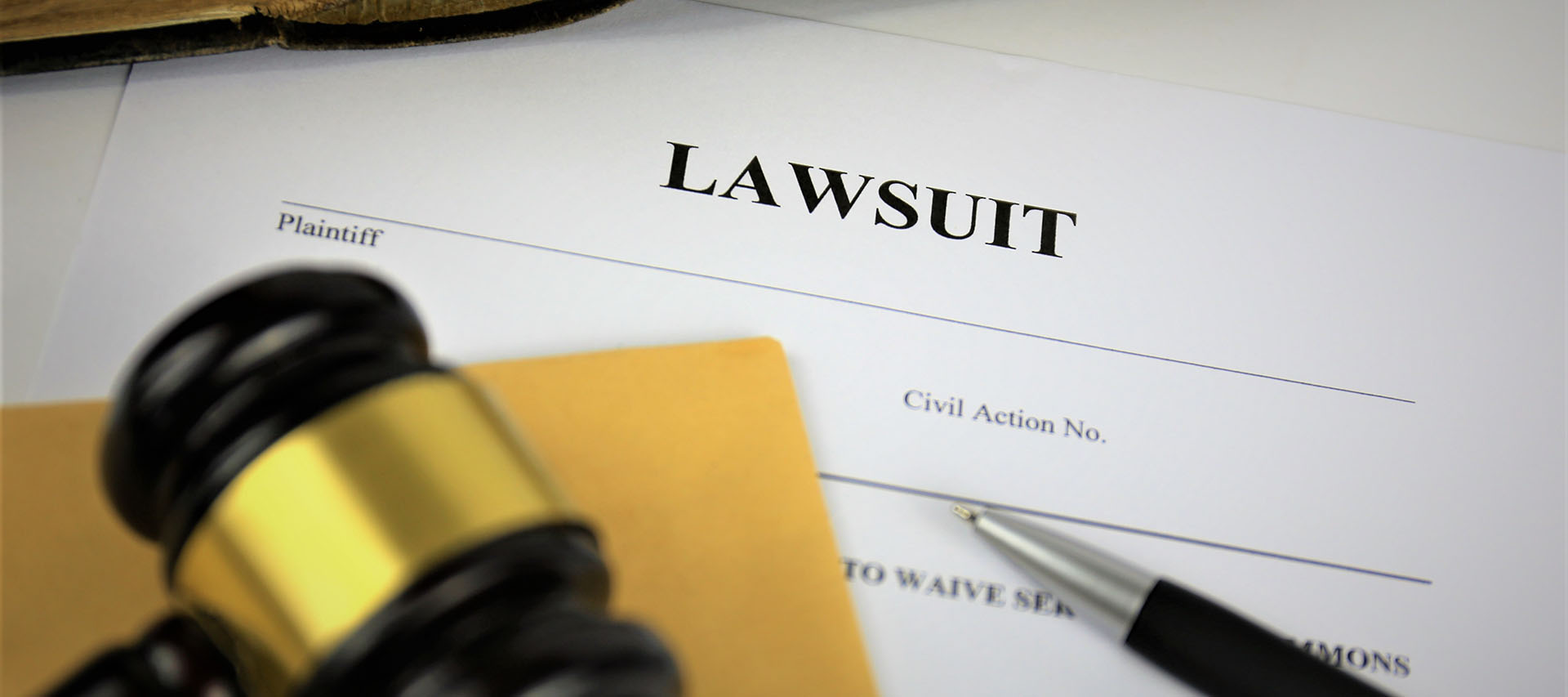 Federal Web Accessibility Lawsuits Nearly Triple In 2018
Federal Web Accessibility Lawsuits Nearly Triple In 2018
 Life, Liberty, and the Pursuit of Pizza
Life, Liberty, and the Pursuit of Pizza
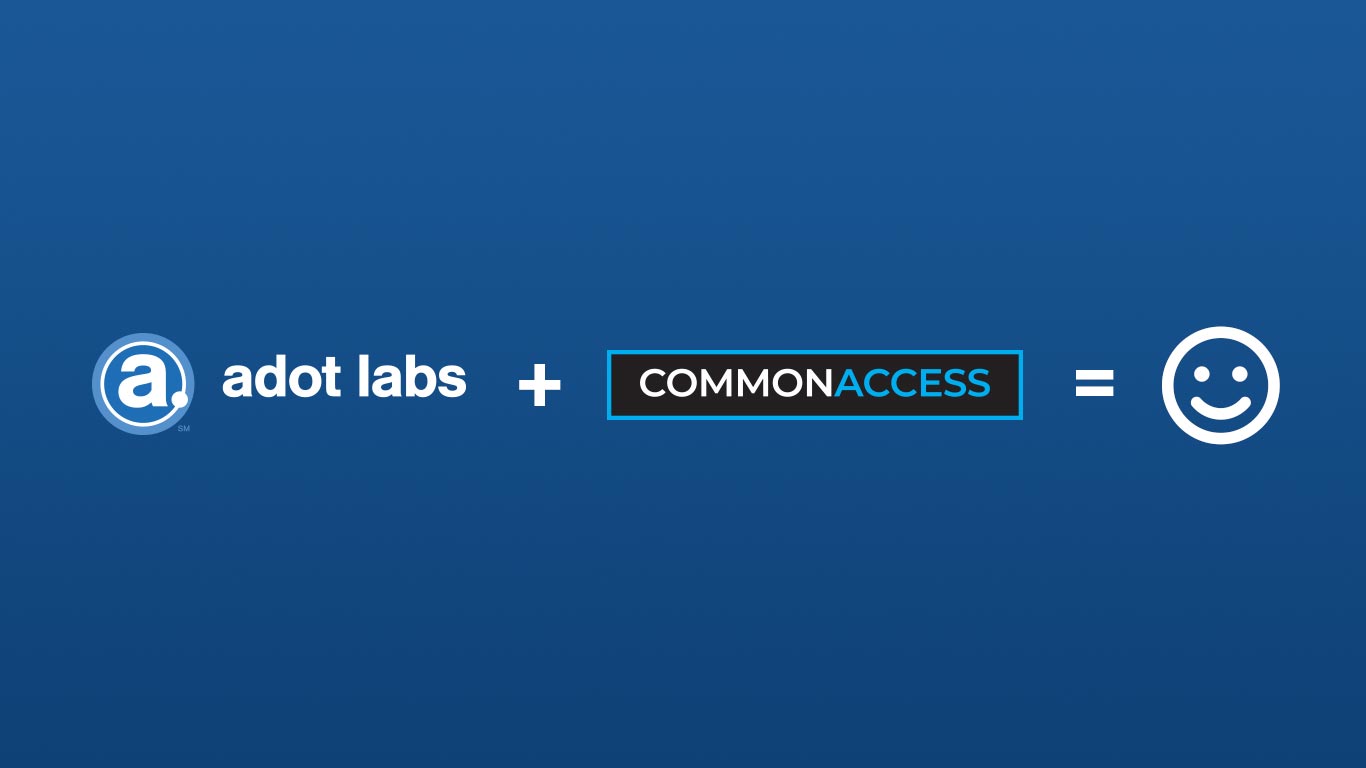 Adot Labs is now CommonAccess
Adot Labs is now CommonAccess
 How I See It: Business Websites vs. the Disabled
How I See It: Business Websites vs. the Disabled
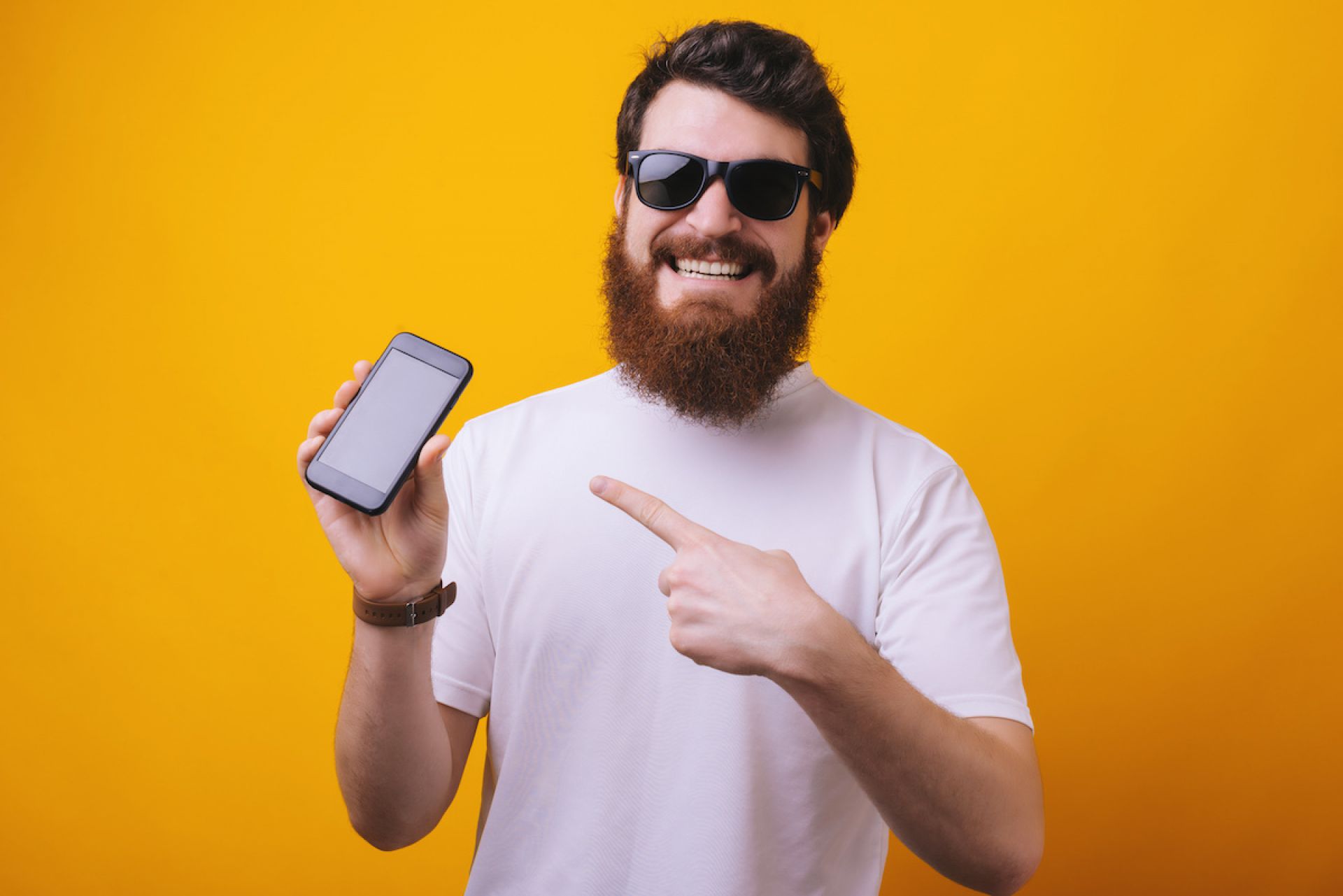 Blind People Use Computers?
Blind People Use Computers?
 Web Accessibility Doesn't Stop for Summer Break
Web Accessibility Doesn't Stop for Summer Break
 Are You Ready to Party this Cinco de Mayo?
Are You Ready to Party this Cinco de Mayo?
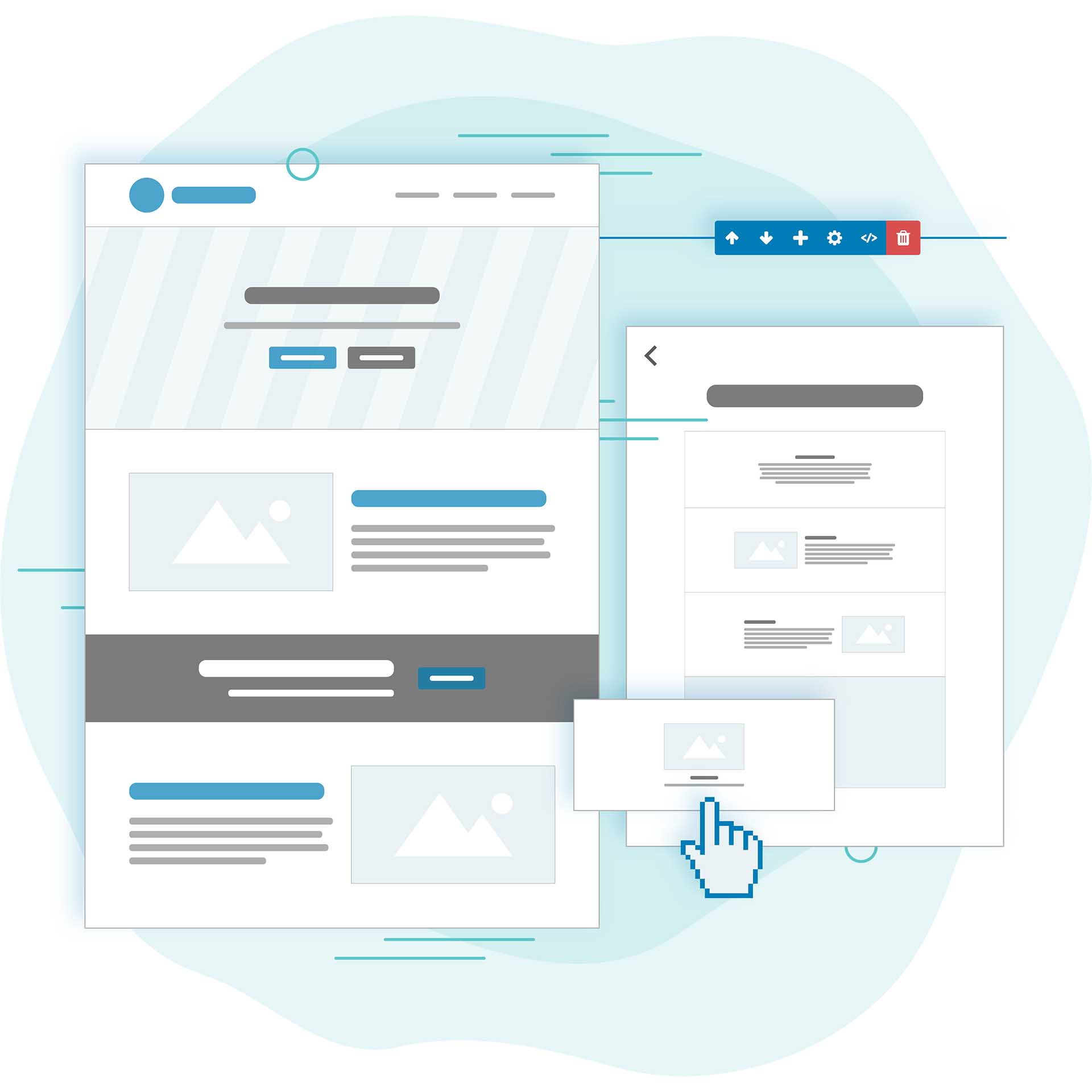 Designing with Visual Page Builder is Easy
Designing with Visual Page Builder is Easy
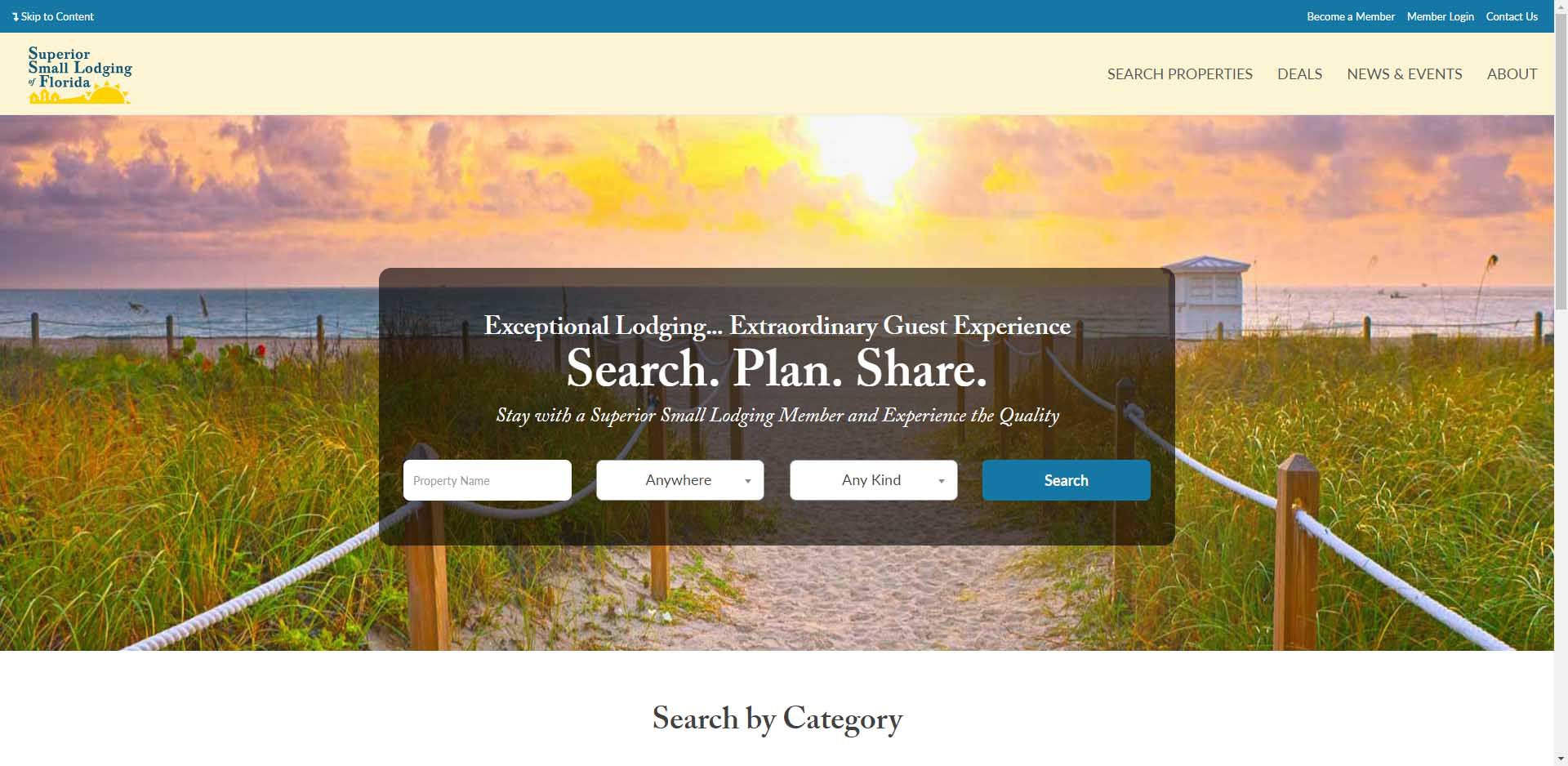 Strength in Numbers
Strength in Numbers
 Small Businesses Celebrate Mother's Day
Small Businesses Celebrate Mother's Day